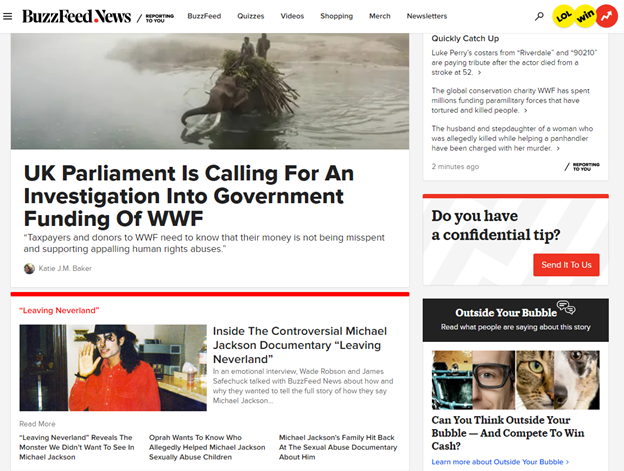Social media transformation is not only a technological shift but an organizational change which occurs at the intersection of businesses, customers, and technology. Due to this transformation, social media is continuously becoming an important component in the customer decision journey.
Marketers or executives should have a deep understanding of how social media interacts with customers. It helps them to expand product, drive sales, increase profitability, and brand recognition.
Social media trends for business play a vital role in finding ways to engage and interact with customers. It serves as a compass of sorts for marketers or executives looking to move their digital transformation forward.
The following trends will help to optimize social media strategies, seize new opportunities for growth, and to reach out to the target audience more easily and effectively.
Micro-Moments
Marketers who understand the micro-moments and change their digital ecosystem accordingly will stand out in the field of online business. They can use micro-moments to create countless chances to increase reach, engagement, and conversions.
Linking Micro Moments with Customer Journey
The first step begins with a complete understanding of the customer journey and its marketing implications. Earlier, there was a linear customer journey where marketers could control a brand’s message but now they are trying to capture the attention of customers on a fragmented journey. Here comes the role of Micro-Moments.
Marketers need an intelligent approach to design and market micro-moments. Personalized content and call-to-action that can add value to the business. Marketers should act seamlessly in real-time and across different channels using a combination of search data and trends.
How to Succeed in the Micro-Moments
Identify your brand’s micro-moments: First of all, it’s necessary to know what typical purchase journey looks like for the industry in which you are serving. Find the moments that matter for your brand using tools such as Shopping Insights Beta tool, Consumer Barometer, etc.
Design the Journey: A marketer should always focus on delivering a customer-centric experience. What customers want and need should be identified and curated properly.
Measure Micro-Moments: You should set-up metrics such as engagement, conversion rate, ROI, and more, to track activities for every micro-moment. Analyzing them can help you to gain a better understanding of what your customers want from you.
Example

Booking.com, a travel fare aggregator website, built a marketing team to understand America’s travel micro-moments. After a year, the company was able to book 27 percent more rooms than the previous year.
Omnichannel Marketing
Customers expect the convenience that allows them to start their buying journey on one channel and end it on another. We are talking about Omnichannel; that aspire retailers to provide a seamless and integrated shopping experience across all touch-points.
Omnichannel Marketing: Better Breakthrough
Marketers have to take a more disciplined and planned approach to understand how customers think and behave at each step of the buyer’s journey. Then only they can design an effective omnichannel marketing strategy. Following are the step-by-step approach which a marketer can adopt.
Discover Personas: Creating personas is all about describing the major segments of the customer population in a better way.
A persona should include the following information:
- Age, location, etc.
- Needs, goals, and motivation
- Job Title
- Habits (behavioral)
- UX wants
Charting a journey’s map: The next step is to identify the important hidden points that the persona encounter throughout the journey. Map all the current journeys that customers can follow across different channels and display them together.
Design Omni Channel initiative for Each Improvement Area: Implement findings to an improvement strategy that covers several dozen initiatives (revamped offers, new performance measurement practices, better data links, etc).
Example

Starbucks provides one of the best omnichannel experiences in the industry. Buyers get a free reward card which can be reloaded via phone, in-store, website, etc. If any changes are made, the card information gets automatically updated across all channels.
Engaging Diversity
Marketers recognize the importance of diversity in both marketing and advertising. It is important is to show diverse consumers that their culture is being recognized and appreciated across the world. Diversity represents a growing opportunity for your business and builds enduring relationships with rewarding new audiences.
How to Get Started with Diverse Marketing
- Assemble a diverse marketing team.
- Discover new insights into inclusive marketing.
- Choose images and videos with balanced representation of diversity.
- Do inclusive copywriting to make your message resonate more.
Example

Source – LinkedIn
LinkedIn’s commitment to have diverse team members working together is observed by it’s partnerships with the United Nations, Lean in, and more.
Integrating Customer Relationship Management (CRM) and Social Media
Incorporating CRM with social media helps you to answer customer queries, maintain a consistent brand voice across different channels, increase revenue, and market share.
Insights that you can gain by integrating CRM and social media together
- Customer Buying Behavior: You can get an in-depth knowledge of customer behavior which improves current customer relationships and also enriches buyer personas for better engagement in the future.
- Customer Sentiment: It helps to calculate customer’s emotions regarding a certain product, brand, or business.
- Customer Advocacy Opportunities: CRM plays a very important role in improving customer advocacy. With the help of social monitoring, you can come to know what customers are talking about your products or brand.
Example

Air Canada always boasts its willingness to explore and travel through various social media channels. With the help of integration of CRM with social media, Air Canada improves engagement with the company more easily and effectively.
Growth Hacking
It is a process which includes rapid experimentation of marketing channels and messages in order to find the most efficient path towards fast business growth. Growth Hacking combines unconventional marketing strategies to acquire more customers which leads to an increase in the overall revenue.
Growth Hacking Strategies That Work
Acquire Potential Customers: A new marketing campaign in addition to the creation of content can help you reach a wider audience.
Engage your potential customers and convert them into leads: Website visitors may not be ready to make the purchase decision in their first visit. So, it’s necessary to engage them consistently.
Optimize the content: Optimize the conversions based on the customer’s experience. The best way to do that is through AB Testing.
Example

Airbnb found that people were looking for accommodation on websites like Craigslist. So, they decided to offer an option for Airbnb accommodation providers to copy their listings to Craigslist. This led to an immediate increase in the customer base.
Marketing Automation
It is the use of software to streamline, measure, and automate marketing activities.
Few marketing automation features that can drive engagement:
Email Marketing: With this, you can deliver the right content to prospects at the right stage of their journey.
Mobile Marketing: Marketers can create a seamless brand experience by engaging with customers more easily and effectively on mobile devices.
Analytics and Reporting: It’ important to test, measure, and validate before investing more. This can only be possible if you track the right engagement metrics and evaluating the effectiveness of various campaigns.
Example

BuzzFeed has an email marketing program that leverages automation. The company has created more than 20 email newsletters such as pets, animals, health, beauty, etc.
Apart from above, there are some other social media trends such as influencer marketing, use of chatbots, and more that are impacting the online business world.
Reach More and Convert using the Power of Social Media
The dominance of social media will continue to increase globally. Digital consumers are looking for new and personalized ways to engage with brands. Expectations and needs put pressure on brands to add value by providing a better and more enhanced experience. The above- discussed social media trends are playing a significant role and brands should invest in social media marketing to stay relevant.







